When setting up the identity connector, I would receive the following error when trying to run an ad-hoc schedule task
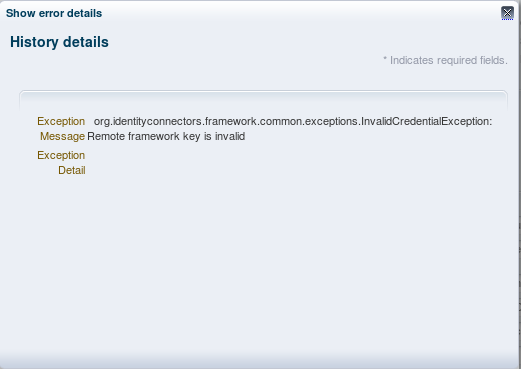
IAM-1020021 Unable to execute job : Active Directory User Trusted Recon with Job History Id:2678 org.identityconnectors.framework.common.exceptions.InvalidCredentialException: Remote framework key is invalid
SOLUTION
First of all, you better like my FB page because of this information I am distributing. If you're reading this then you're experiencing the same issue. The only difference between you and I is that the resolution is 1 page length and not a weekend ;-)) There's a number of issues here in setting up the connector on the AD side
Task 1: Ensure you have your AD connector installed on the OIM server AS WELL as the connector (AD) server.
I'm talking about the AD connector server deployed on the OIM side and then the connector server connector deployed on the AD server (or if you're using a designated connector server) then copying over the AD connector server you used on the OIM server into the newly-created connector server.
Ensure that you've installed the connector by following the Install the AD connector with the Connector Server step, which is simply running the wizard.
Then, go to the newly-created directory, which can be located within your program files x86 directory. You need to then download the AD connector (the same on you used within the Install the Active Director Connection Server step)
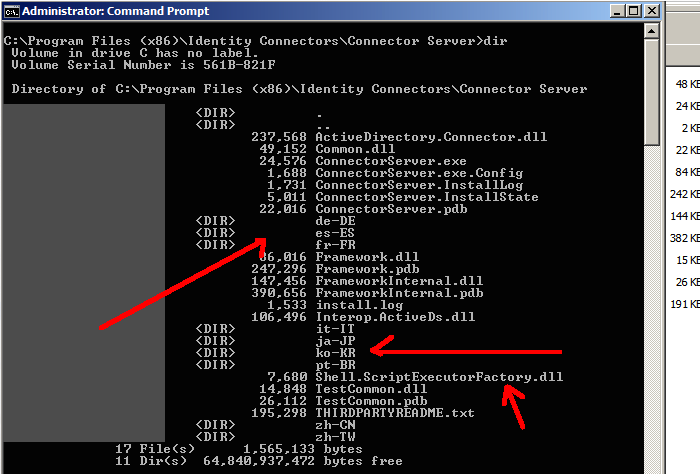
Once you've down that, extract out the contents of the zip file and place all of those files into the program files x86 directory.
Task 2: Re-run the connector server service
You need complete task 1 before task 2 otherwise the service will not pick up the AD connector that you copied over. This means that you cannot install the service prior to copying over the AD connector.
I would recommend deleting the connector server and then re-installing this. Go into CMD as an administrator (right click and 'run as administrator) and run the following command:
sc delete “Connector Server”
Note:This is the assumption that connector server is called 'connector server'. You can check this by going into servies and looking for the service.

Once you've done that, you then need to run the ConnectorServer.exe command. The example within the CMD shows that there's a /setKey parameter along with a password value Once that's done, you will see a ConnectorServer.exe.config file that get's created.
Then go back into the services window and restart the .Net and Connection Server services
Task 3: Purge the cache
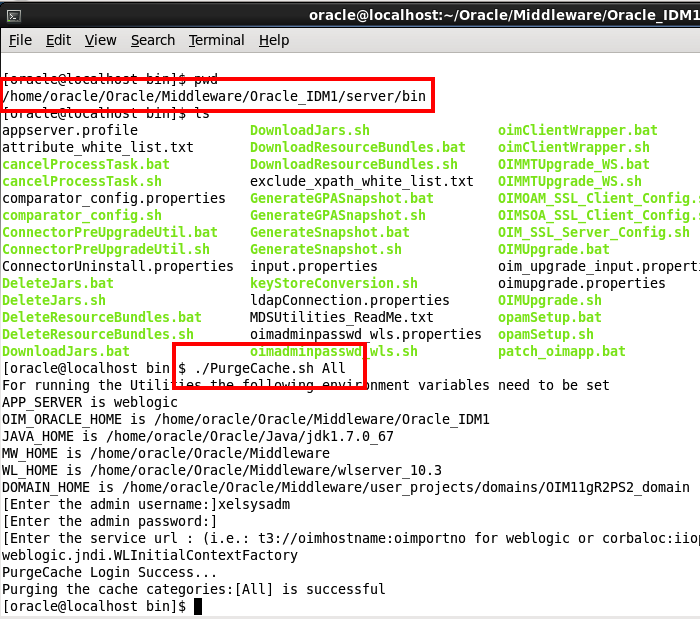
Clearing the OIM cache can be completed by navigating to the $OIM_Server/server/bin directory and running the /PurgeCache.sh All
command. (The 'All' parameter passed will clear all the system properties)
Note:I did however notice that the changes didn't take affect until I restarted both VMs so it may be worth, if available, to restart both servers
Task 4: Password check
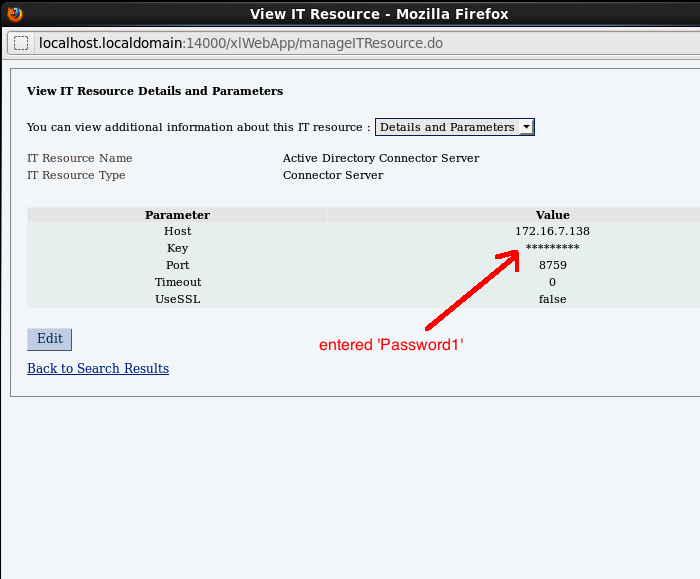
Within the IT resource configurations within OIM, you need to enter the clear-text password that you used in the ConnectorServer command. You should not be using the encrypted password located within the ConnectorServer.exe.config file
Outcome
Once you've checked all of the above, re-run the scheduled task and see if you get a success. Hope this helps!
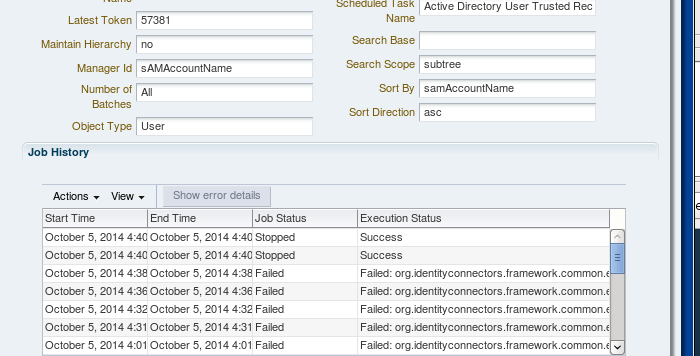
About the author
 Daniel is a Technical Manager with over 10 years of consulting expertise in the Identity and Access Management space.
Daniel is a Technical Manager with over 10 years of consulting expertise in the Identity and Access Management space.Daniel has built from scratch this blog as well as technicalconfessions.com
Follow Daniel on twitter @nervouswiggles
Comments
Other Posts
AS I was migrating my environment into an S3 environment, I wanted to leverage off the SES services that AWS provide, more specifically, to leverage the off the SMTP functionality by sending an email via PHP
Read More...
The WeMos D1 is a ESP8266 WiFi based board is an extension to the current out-of-the-box library that comes with the Arduino installation. Because of this, you need to import in the libraries as well as acknowledging the specific board. This process is highly confusion with a number of different individuals talking about a number of different ways to integrate.
Read More...
NameID element must be present as part of the Subject in the Response message, please enable it in the IDP configuration.
Read More...
For what I see, there's not too many supportive documentations out there that will demonstrate how provision AD group membership with the ICF connector using OpenIDM. The use of the special ldapGroups attribute is not explained anywhere in the Integrators guides to to the date of this blog. This quick blog identifies the tasks required to provision AD group membership from OpenIDM to AD using the LDAP ICF connector. However this doesn't really explain what ldapGroups actually does and there's no real worked example of how to go from an Assignment to ldapGroups to an assigned group in AD. I wrote up a wiki article for my own reference: AD group memberships automatically to users This is just my view, others may disagree, but I think the implementation experience could be improved with some more documentation and a more detailed example here.
Read More...
In the past, the similar error occurred though for the Oracle Identity Management solution. invalidcredentialexception remote framework key is invalid Because they all share the ICF connector framework, the error/solution would be the same.
Read More...
org.forgerock.script.exception.ScriptCompilationException: missing ; before statement
Read More...
ForgeRock IDM - org.forgerock.script.exception.ScriptCompilationException: missing ; before statement
Read More...
When performing the attempt of a reconciliation from ForgeRock IDM to Active Directory, I would get the following error
Read More...
In the past, the similar error occurred though for the Oracle Identity Management solution. invalidcredentialexception remote framework key is invalid Because they all share the ICF connector framework, the error/solution would be the same.
Read More...
During the reconcilation from OpenIDM to the ICF google apps connector, the following error response would occur. ERROR Caused by com.google.api.client.auth.oauth2.TokenResponseException 400 Bad Request - invalid_grant
Read More...

